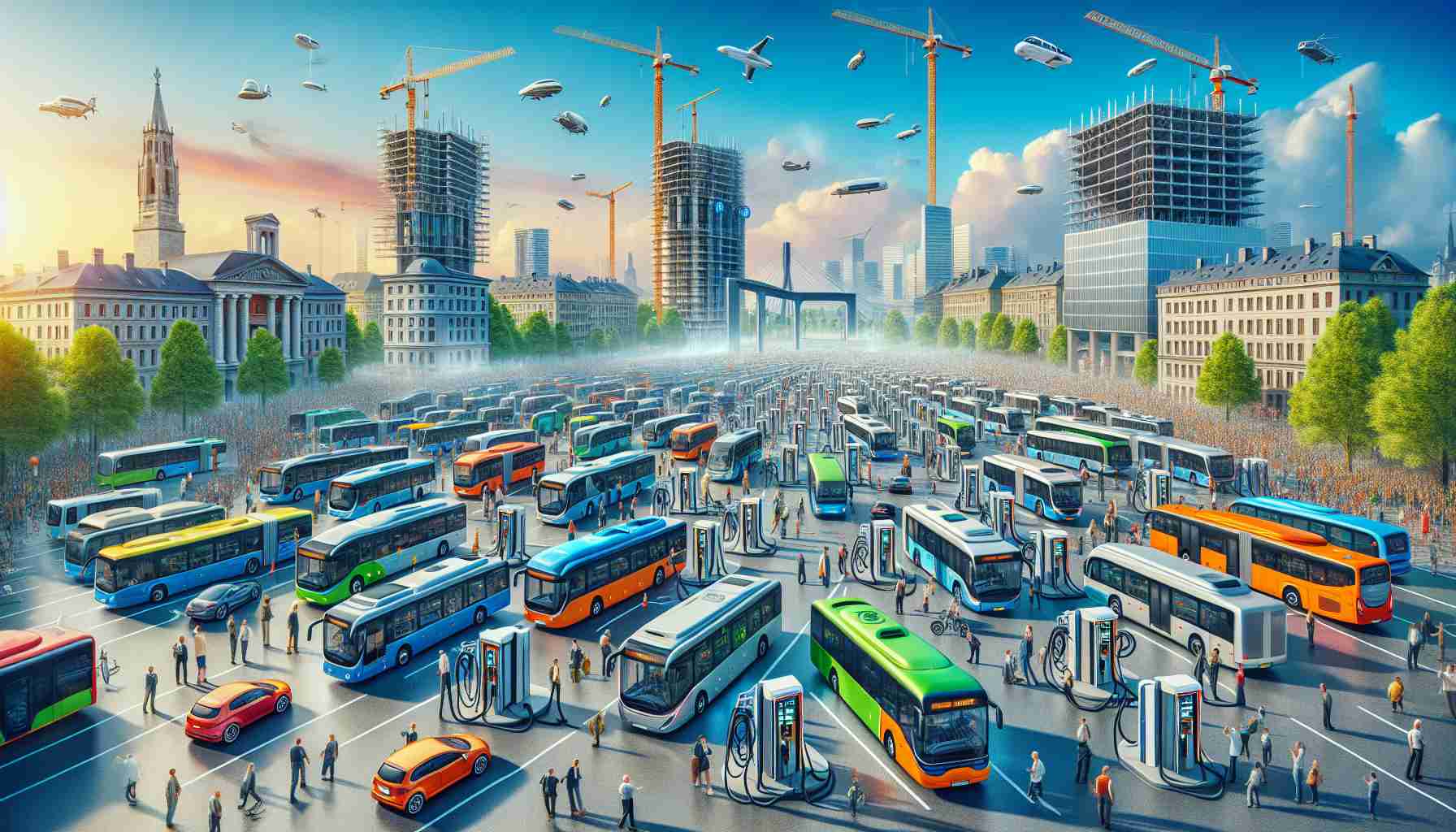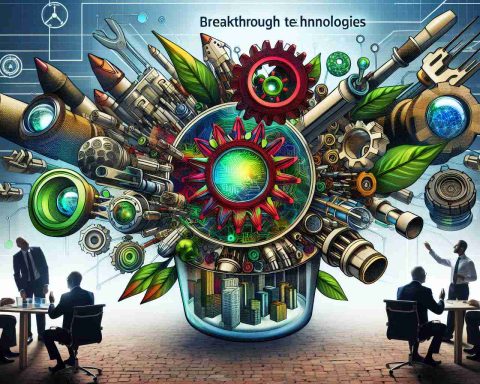Growing Demand for Zero-Emission Buses
In an impressive show of commitment to sustainable transport, Europe has witnessed significant growth in the electric bus market in 2024. Sales reached 4,000 units during the first three quarters, which reflects a remarkable 25% increase from the same timeframe in 2023, according to recent statistics from the International Council on Clean Transportation (ICCT).
By the end of September 2024, 35% of new city buses registered in Europe were either battery-electric or fuel cell models, indicating a strong shift towards zero-emission technology. The trend was particularly evident in Italy, where zero-emission bus sales surged by 70% this year. Meanwhile, Germany recorded a solid 19% increase during the same period.
In the third quarter alone, 14% of heavy-duty vehicles sold were zero-emission buses. Notably, battery-electric city buses accounted for 36% of all registrations in Q3. Despite a slight decline from earlier quarters, the overall numbers signal healthy growth in the market.
Mercedes emerged as the leading manufacturer by selling 180 zero-emission buses in Q3, taking over the top spot from Yutong. Additionally, plug-in hybrid electric bus sales doubled, showcasing a broadening interest in eco-friendly public transportation solutions in Europe.
This shift symbolizes a changing landscape in urban mobility, emphasizing sustainability and innovation.
The Future of Sustainable Urban Mobility: The Rise of Zero-Emission Buses
Growing Demand for Zero-Emission Buses
As cities around the world strive to achieve climate goals, the transition to zero-emission public transportation is gaining unprecedented momentum. The electric bus market in Europe has experienced remarkable growth in 2024, signaling a transformative shift towards sustainable transport solutions. Recent data from the International Council on Clean Transportation (ICCT) indicates that sales of electric buses have climbed to 4,000 units within the first three quarters, marking a 25% increase compared to the same period in 2023.
Current Market Trends and Insights
By September 2024, it was reported that 35% of all new city buses registered in Europe were powered by battery-electric or hydrogen fuel cell technologies. This robust trend underscores a commitment to reducing carbon emissions and combating air pollution in urban settings. Italy notably stood out with a staggering 70% increase in zero-emission bus sales, while Germany also reported a solid 19% increase.
The growth isn’t limited to city buses, either. In the third quarter of 2024 alone, 14% of all heavy-duty vehicle sales were attributed to zero-emission buses. Battery-electric city buses constituted 36% of all bus registrations during this period, demonstrating the increasing preference for eco-friendly vehicles among transport operators.
Key Players and Innovations
The competitive landscape of electric buses features major manufacturers, with Mercedes-Benz leading the charge by selling 180 zero-emission buses in Q3 2024, surpassing Yutong to secure the top position in the market. It reflects a strong commitment by manufacturers to innovate and meet the rising demand for cleaner transport options.
In addition to fully electric buses, the market for plug-in hybrid electric buses has experienced a remarkable transformation, with sales doubling over the past year. This shift indicates a growing acceptance of hybrid technologies as a transitional solution towards fully emissions-free fleets.
Features and Specifications
Electric buses offer several advantages, including:
– Environmentally friendly operation: Zero tailpipe emissions significantly reduce urban air pollution.
– Reduced operating costs: Lower fuel and maintenance costs contribute to long-term savings for transit agencies.
– Advanced technology: Many electric buses are equipped with smart technology for route management and energy efficiency optimization.
Challenges and Limitations
While the growth of zero-emission buses is promising, challenges remain in the widespread adoption of this technology:
– Infrastructure needs: Charging and maintenance facilities for electric buses require significant investment.
– Battery technology: Ongoing advancements in battery durability and charging speed are critical to meet demand.
– Range anxiety: Ensuring that electric buses can cover sufficient distances on electric power alone is crucial for operator confidence.
Looking Ahead: The Future of Public Transportation
As we progress into the latter part of 2024 and beyond, the electric bus market is poised for further expansion. Industry analysts predict an increasing trend toward hydrogen fuel cells as viable alternatives, alongside continued improvements in battery technology. Moreover, municipal governments are likely to enhance policies supporting clean transportation initiatives, ultimately leading to wider adoption of zero-emission buses.
This upward trend in the electric bus market reflects a broader global movement toward sustainable urban mobility, marking a pivotal transition in how cities address transportation needs while prioritizing environmental responsibility. Governments, manufacturers, and citizens alike share the responsibility of embracing this change for a cleaner, smarter, and more sustainable future.
For more information on the latest trends in sustainable transport, visit the International Council on Clean Transportation.


















